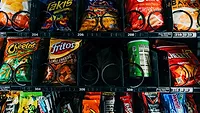‘Toxic Free Food Act’ Would Close FDA GRAS ‘Loophole’ Allowing Potentially Toxic Additives in Food

Image credit: Freepik
U.S. Representative Rosa DeLauro (D-CT), Chair of the House Appropriations Committee, recently introduced to Congress the Toxic Free Food Act, which would require the U.S. Food and Drug Administration (FDA) to overhaul the “generally recognized as safe” (GRAS) process. Critics of GRAS call it a “loophole” that enables food manufacturers to introduce additives to the food supply without adequate scientific review or public notification, and scrutiny of the GRAS process by legislators and experts has intensified in recent years.
The GRAS “Loophole”
Although the GRAS process was created with the intent of allowing widely used food ingredients, historically proven to be safe, to remain on the market without extensive review, in the present day, food manufacturers have been accused of using GRAS as a way to formulate products with new additives while avoiding formal review.
In September, Harvard Medical and Law experts published an article calling on FDA to address gaps in the GRAS process allowing potentially unsafe substances to enter the food supply. The authors pointed to a 2022 incident of consumers experiencing liver injury due to the consumption of a ground beef substitute made with tara flour—a “GRAS” ingredient—which led to FDA rescinding its GRAS status in 2024 after retroactively reviewing its safety.
In her reasoning for introducing the Toxic Free Food Safety Act, Rep. DeLauro cited a 2010 U.S. Government Accountability Office (GAO) report that concluded FDA’s performance was inadequate and did not ensure the safety of GRAS substances. She also referenced an estimate from Consumer Reports suggesting that approximately 1,000 GRAS substances currently exist on the market without an independent safety review or notification to FDA.
“The food industry is designating new ingredients as GRAS to take advantage of this loophole so they can rush new chemicals to market with no oversight. Those that choose to notify FDA of their new substance get to supply their own, company-funded science and keep it away from the eyes of the public. This approval process must be mandatory, transparent, and independent,” said Rep. DeLauro.
The Toxic Free Food Act
If passed, the Toxic Free Food Act would revise FDA’s GRAS final rule to prohibit manufacturers from determining any synthetic or novel chemical substance, as well as any carcinogenic substance, to be GRAS.
Looking for quick answers on food safety topics?
Try Ask FSM, our new smart AI search tool.
Ask FSM →
The act would also prohibit any company from manufacturing, marketing, or selling a substance it considers to be GRAS, unless:
- FDA receives notification from the manufacturer that it has determined the substance to be GRAS
- The manufacturer provides FDA with supporting information sufficient to understand the basis of the GRAS determination, including evidence about the cumulative effects of the substance, factors for adequately protective use of safety, and an application of a margin of safety to take into account the impacts of exposures for developing children and vulnerable populations.
Upon receiving an adequate GRAS notification, FDA would be required to make GRAS determinations and supporting evidence publicly available on its website, and provide a 90-day period for the agency and the public to review each GRAS determination to ensure its safety. FDA would not be allowed to consider supporting evidence for GRAS determinations from experts with conflicts of interest.
The Toxic Free Food Safety Act would also mandate FDA to create a systemic process for assessing substances already determined to be GRAS that do not meet the revised GRAS standards set forth by the act.
Other Legislation Targeting GRAS
Concerns about the GRAS process have inspired a wave of state legislation targeting food additives that precede Rep. DeLauro’s Toxic Free Food Act, beginning with the California Food Safety Act passed in 2023, which bans several possibly toxic additives from foods sold or manufactured in the state. California Assemblymember Jesse Gabriel, who spearheaded the legislation, named the GRAS “loophole” as a reason for writing the law.
Other states are following in California’s suit with bills that would take additives regulation into their own hands, including a New York Assembly bill that aims to require businesses to notify the State of New York when determining a substance to be GRAS, and provide supporting evidence.
At the federal level, in September of this year, U.S. Senator Cory Booker (D-NJ) introduced the Safe School Meals Act, a bill that would make a number of reforms to improve the safety of school lunches, including a requirement for FDA to systematically evaluate GRAS substances with known carcinogenic, reproductive, or developmental health harms.
The Toxic Free Food Act is supported by the Environmental Defense Fund, the Environmental Working Group, the Center for Science in the Public Interest, Consumer Reports, Healthy Babies Bright Future, Defend our Health, Earthjustice, the Center for Food Safety, and Breast Cancer Prevention Partners.









